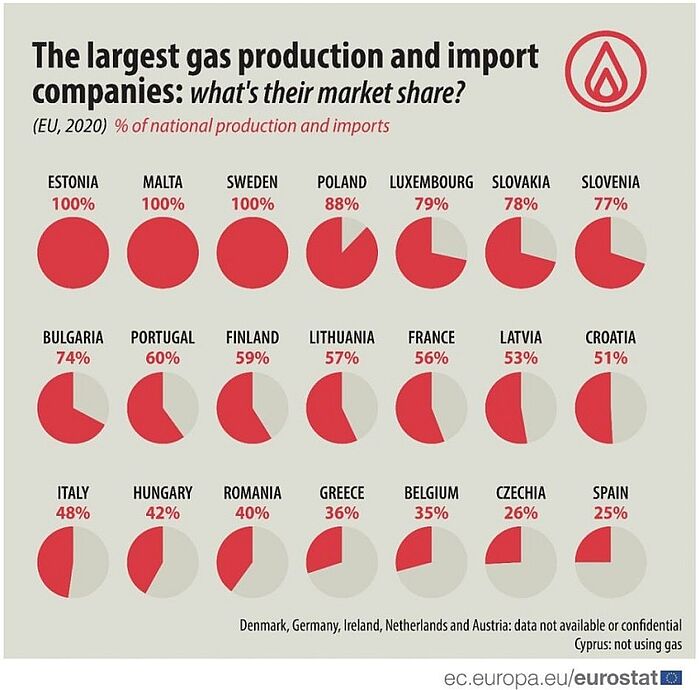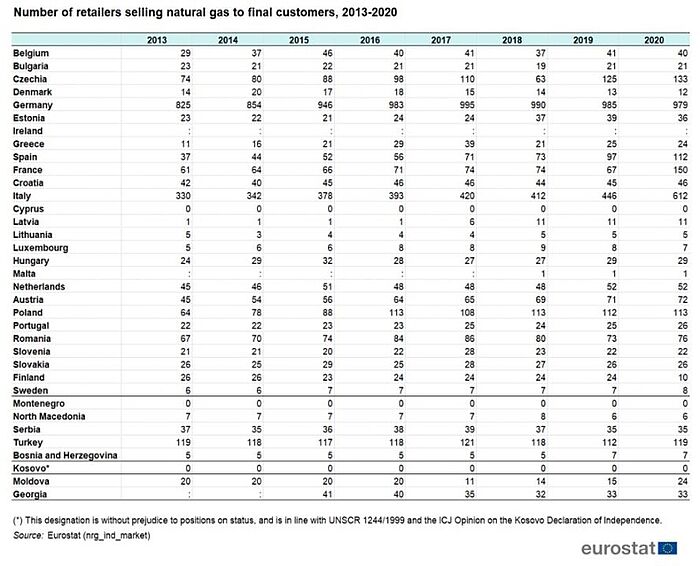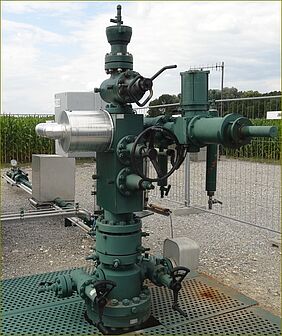The updated Natural gas market indicators by Eurostat reviews the 2020 statistical data on the natural gas market in the European Union analyzing the activities of companies that supply natural gas to the national market by importing or producing it (IMport and PROduction = IMPRO).
In general, a significant number of new companies entered the natural gas market between 2013 and 2020. While in 2013 there were 332 companies on the list, in 2020 there were 480. It should be noted that some countries, such as Denmark, the Netherlands and Ireland, are not included in these statistics. The increase in the number of companies was mainly due to smaller companies, but the number of companies with a market share above 5% also increased from 54 in 2013 to 76 in 2020.
The figure below shows the market share of the single largest IMPRO company as a share of national indigenous production and import. In Estonia, Malta and Sweden only one company dominated the market. The lowest market penetration of the largest IMPRO company at national level was observed in Spain (25 %), Czechia (26 %) and Belgium (35%).
If we compare 2020 data with 2019 data, the largest increase was observed in Finland - from 1 MMPRO company to 21. This jump was due to the opening of the Finnish gas market to competition, which gave third parties equal access to the gas network. Increases were also observed in Bulgaria, Finland, Latvia, Lithuania, Austria and Spain. In the same period, the total number of IMPRO companies remained stable in five member states (Estonia, Cyprus, Malta, Slovenia and Sweden). In thirteen EU member states, the number of IMPRO companies decreased.
In addition, Eurostat provides information on the total number of retail companies that sell natural gas to end consumers. In 2020, the highest number of retail companies was recorded in Germany – 979, followed by Italy – 612. As can be seen from the table below, between 2019 and 2020, the number of retailers decreased in seven EU member states, remained stable in nine and increased in the remaining member states.
